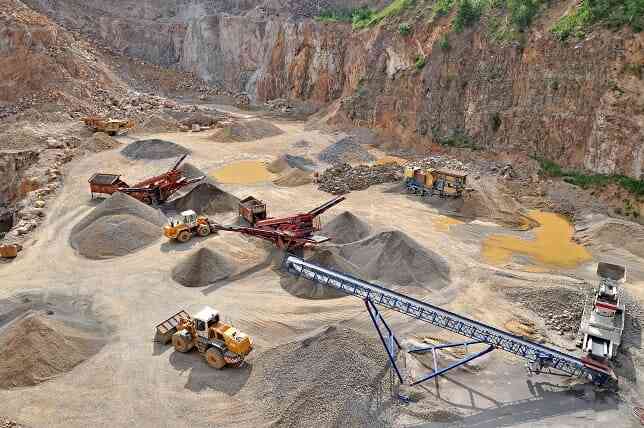
IN resource-rich nations, the promise of mining seems disingenuous.
While it offers the potential for economic growth and development, it often comes at the expense of local communities, particularly in terms of their access to potable water and general water security inclusive of water for agriculture.
As mining companies expand their operations, the competition for water resources becomes increasingly fierce, raising critical questions about water security and the need for equitable distribution.
This issue is particularly pressing in the agro-based nation of Zimbabwe, where the burgeoning mining sector threatens both the environment and the livelihoods of those who depend on water for survival.
The impact of mining on local water resources
Mining activities require vast quantities of water, not only for extractive processes, but also for the needs of workers and surrounding communities.
This demand can have devastating effects on local water supplies, leading to the depletion of rivers, streams and aquifers that communities rely on for drinking water, irrigation and sanitation.
In lithium, gold and chrome- rich areas like Buhera, Bikita, parts of Mvurwi, Hwedza, Zvishavane, Shurugwi, Mberengwa and Goromonzi, where mining activities have surged, residents are witnessing an alarming decline in the water table, which directly impacts its availability.
- Mavhunga puts DeMbare into Chibuku quarterfinals
- Bulls to charge into Zimbabwe gold stocks
- Ndiraya concerned as goals dry up
- Letters: How solar power is transforming African farms
Keep Reading
As the water table drops and pollution reaches alarming levels, the implications extend beyond mere inconvenience; they threaten the very fabric of community life.
Farmers find their crops wilting, families struggle to access clean drinking water and health risks from water pollution increase.
The situation is particularly dire for vulnerable populations, including women and children, who often bear the brunt of water scarcity.
Legal frameworks and water security in mining communities
The legal frameworks governing water security in mining communities of Zimbabwe are complex and often inadequate to protect the interests of local communities.
While section 191 of the Mines and Minerals Act provides for “private water”, the replacement of the 1976 Water Act with the 1998 Water Act brought about disregard of private ownership of water, although the Act provides for issuance of water use permits.
The Mines and Minerals Bill which was gazetted in February 2023 has not prioritised the importance of water resources management within mining communities.
Mining companies often operate under special licences that grant them freedom to deplete water resources.
These licences are frequently issued with little regard for the potential impact on local communities, catchments and groundwater resources.
As a result, the voices of those most affected by mining activities are sidelined in decision-making processes, leading to a growing sense of disenfranchisement and water injustice.
The need for equitable resource distribution
It is clear that the current legal frameworks are insufficient to ensure security of water resources in mining regions.
There is an urgent need for reforms that prioritise community rights and promote sustainable water management practices.
This includes recognising the importance of proper catchment management, limited pollution of water resources and recognition of water security of local populations, which have often been overlooked in favour of mining industry interests. Engaging communities in water governance is essential.
By involving residents in decision-making processes regarding water allocation, mining companies and government authorities can foster a sense of ownership and responsibility.
Participatory approaches not only empower communities, but also lead to more sustainable outcomes as local knowledge and practices can inform better water management strategies.
Case studies and success stories
Several initiatives around the world offer valuable lessons on how to address water security issues in mining communities.
For instance, in some regions of South America, mining companies have successfully partnered local communities to implement water stewardship programmes that prioritise both mining industry needs and community water needs.
These partnerships have led to the establishment of shared water management frameworks, ensuring local populations retain security of water resources while allowing mining operations to continue sustainably.
In Zimbabwe, similar models could be explored.
By fostering collaboration between mining companies, government entities and local communities, there is potential to create a more equitable distribution of water resources.
This approach not only benefits communities but also enhances the social licence to operate for mining companies, reducing conflict and fostering goodwill.
Advocacy for policy and law reform
To achieve meaningful reform, advocacy is crucial.
Civil society organisations, including the Community Water Alliance (CWA), local leaders and concerned citizens must raise awareness about the importance of equity and security of water resources in mining regions.
This includes pressing for legislative reforms that recognise the traditional rights of communities and ensure that water allocation considers the needs of all stakeholders, not just those of mining industry interests.
Moreover, public pressure can compel mining companies to adopt more responsible practices regarding water use.
By demanding transparency and accountability, communities can hold companies accountable for their impact on local resources.
The struggle for equitable access to water in mining communities is a pressing issue that demands immediate attention.
As Zimbabwe continues to grapple with the challenges posed by the mining boom, it is essential to prioritise the rights of local communities in water governance.
CWA understands that by reforming legal frameworks, fostering community engagement and advocating for responsible resource management, a future where both mining and local populations can thrive harmoniously can be crafted.
Water is life and ensuring its equitable distribution is not just a matter of justice; it is a fundamental human right that must be upheld for the sake of current and future generations.
- Hardlife Mudzingwa is the executive director for Community Water Alliance. He writes here in his personal capacity. He can be contacted on [email protected] or on 077 525 5458.










